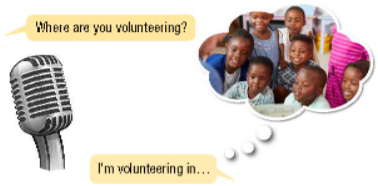Exercise 12. Mark the letter A, B, C or D to indicate the sentence that best combines each pair of sentences in the following questions.
140. Sacred texts and ceremonies can seem confusing with no one there to guide. Young people find an expert willing to explain their significance.
A. Although sacred texts and ceremonies can seem confusing with no one there to guide, young people are forced to find an expert willing to explain their significance.
B. Because sacred texts and ceremonies can seem confusing with no one there to guide, so young people are willing to find an expert to explain their significance.
C. For sacred texts and ceremonies can seem confusing with no one there to guide, young people might find an expert willing to explain their significance.
D. Since sacred texts and ceremonies can seem confusing with no one there to guide, young people are supposed to find an expert willing to explain their significance.
141. Culture, language, facilities or economy level of the family are different. Vocal guidelines and acting in daily activities are the ways of the life experience knowledge transfer.
A. Vocal guidelines and acting in daily activities are the ways of the life experience knowledge transfer despite of different culture, language, facilities or economy level of the family.
B. Vocal guidelines and acting in daily activities are the ways of the life experience powledge transfer regardless of different culture, language, facilities or economy level of the family.
C. Vocal guidelines and acting in daily activities are the ways of the life experience knowledge transfer due to different culture, language, facilities or economy level of the family.
D. Vocal guidelines and acting in daily activities are the ways of the life experience knowledge transfer although different culture, language, facilities or economy level of the family.
142. We can't deny the potential influences of global communications on our cultural identity, as it will become even more powerful.
A. It can be undeniable that global communications will become even more powerful in potentially influencing our cultural identity.
B. It cannot deny that global communications will become even more powerful in potentially influencing our cultural identity.
C. It cannot be denied that global communications will become even more powerful in potentially influencing our cultural identity.
D. It hardly deny that global communications will become even more powerful in potentially influencing our cultural identity.
143. We accept that changes are unavoidable. We will not allow everything to be wiped out, destroyed or forgotten.
A. Accepting that changes are unavoidable does not mean that we will allow everything to be wiped out, destroyed or forgotten.
B. Despite accepting that changes are unavoidable, but we will not allow everything to be wiped out, destroyed or forgotten.
C. Rather than accepting that changes are unavoidable we will allow everything to be wiped out, destroyed or forgotten.
D. We accept that changes are unavoidable, as we will not allow everything to be wiped out, destroyed or forgotten.
144. People have given up their heritage, traditional beliefs and other aspects of their native culture. They begin to lose their sense of self.
A. If people have not given up their heritage, traditional beliefs and other aspects of their native culture, they will not lose their sense of self.
B. Giving up their heritage, traditional beliefs and other aspects of their native culture means that people totally lose their sense of self.
C. Once people have given up their heritage, traditional beliefs and other aspects of their native culture, they are about to lose their sense of self.
D. Whenever people have given up their heritage, traditional beliefs and other aspects of their native culture, they are supposed to lose their sense of self.
145. Thousands of languages are at risk of extinction. You know one of them, then teach it to others.
A. As long as you know one of thousands of languages that are at risk of extinction, then teach it to others.
B. If you know one of thousands of languages that are at risk of extinction, teach it to others.
C. For you know one of thousands of languages that are at risk of extinction, teach it to others.
D. Whenever you know one of thousands of languages that are at risk of extinction, then teach it to others


A: Where do you think people will live in the future?
(Bạn nghĩ mọi người sẽ sống ở đâu trong tương lai?)
B: I think people will live in smart homes.
(Tôi nghĩ mọi người sẽ sống trong những ngôi nhà thông minh.)
A: I don’t understand. Can you explain for me?
(Tôi không hiểu. Bạn có thể giải thích cho tôi được không?)
B: Oh, smart homes use technology to control and have technological equipment. It’s so convenient and intelligent.
(Ồ, nhà thông minh sử dụng công nghệ để điều khiển và có thiết bị công nghệ. Nó rất tiện lợi và thông minh.)
A: Yeahh, I see.
(Yeahh, tôi hiểu rồi.)